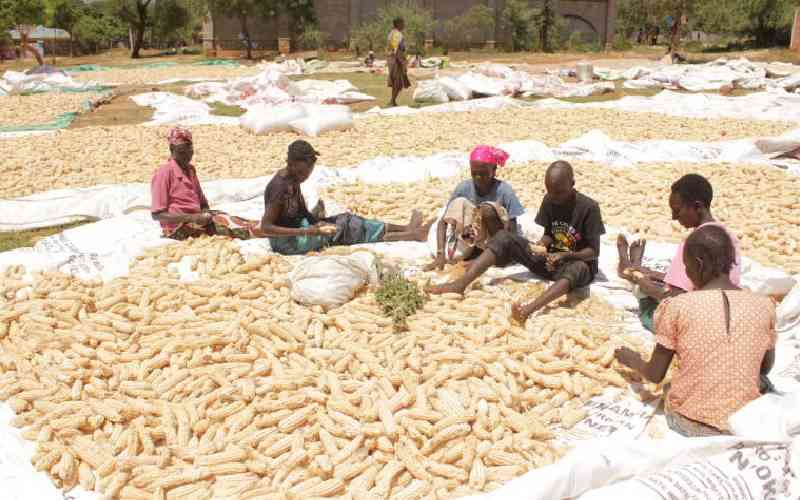×
The Standard e-Paper
Stay Informed, Even Offline

Farmers sorting maize before shelling at Wei Wei irrigation scheme in Sigor, West Pokot County. [Christopher Kipsang, Standard]
Maize prices have maintained a high of over Sh5,000 per 90kg bag in most parts of the North Rift region.